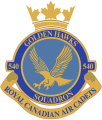540 Golden Hawks is one of 450+ Royal Canadian Air Cadet Squadrons in Canada and has been offering the Cadet Program to the youth of Oakville since 1951.
The Cadet Program provides youth with opportunities to develop valuable life and work skills such as teamwork, leadership, and public speaking, along with personal benefits of increased self-confidence, discipline, initiative, and decision making.
Introduction
Aims
- To develop in youth the attributes of good citizenship and leadership
- To promote physical fitness
- To stimulate interest in the air element of the Canadian Forces
Motto
“To Learn – To Serve – To Advance”
To Learn
Cadets learn about a wide range of topics relating to aviation, citizenship, instructional technique, principles of leadership, wilderness survival, and much more.
The training program is structured and caters towards the developments needs of youth as they progress in age, maturity, and responsibility.
Training extends to the summer months for those cadets selected to attend a summer training course at a Summer Training Centre. Summer courses range from 1-7 weeks and extend the training offered locally at our Squadron.
To Serve
To Advance
Youth leading youth
As our Cadets advance through the program they are given increased opportunities to practice and develop leadership and instructional abilities.
By the time our Cadets reach their fifth year in our Squadron they are formally responsible for the development of their peers and subordinates, as well as planning and executing Squadron activities.
Training Program
Serving the youth and families of Oakville since 1951
Field Training Exercises
Tents, military rations, and weather that will challenge you
Cadets spend these weekends learning outdoor survival topics such as shelter building, fire safety, survival psychology, and more.
Extracurricular Teams
Hard work pays off
Many of our Cadets maintain a high level of activity and engagement with our Squadron by participating in extracurricular teams on evenings and weekends throughout the training year.
Our staff have observed that Cadets who participate on a team are more likely to have greater success with the Cadet Program overall due to building stronger relationships with peers, as well as increased opportunities to develop and practice leadership skills.
Our teams include: biathlon, effective speaking, marksmanship, military band, parliamentary debate, precision drill, rifle drill, and sports. Of special note is our military band, which has had the honour of being awarded Top Band in Ontario for 3 years in a row.
Summer Training
There’s a reason it’s not called summer “camp”
Summer Training provides Cadets with an opportunity to pick one (or more) specialized streams to supplement their regular training at 540 Sqn.
Streams include aviation, aerospace, wilderness survival, music training, drill and ceremonial, fitness and sports, and more. This is also when cadets can earn their Glider or Power Pilot’s license.
Courses run during July and August and range from 1 to 7 weeks long.
Glider Familiarization
The Air Cadet Gliding Program has been an essential component of the Royal Canadian Air Cadets since the beginning of the program.
Each fall and spring, our Cadets have the opportunity to experience the thrill of flight. These familiarization flights can be foundational to the development of each Air Cadet as they “slip the surly bonds of earth” for the first time. An experience that can never be forgotten.
Pilot Training Course
Where Canada’s future airline pilots are made
March Break Trip
Each year 50 Cadets are selected to attend the annual Squadron March Break trip. Selection is based on multiple criteria including: attendance, attitude, participation, and fundraising efforts.
Previous trips have included:
- Boston, MA
- Chicago, IL
- New York, NY
- Norfolk, VA
- Ottawa
- Quebec City
- Washington, DC
Algonquin Canoe Trip
At the end of August, a small group of cadets are chosen to go to Algonquin Park for a 5-6 day canoe trip. Completely detached from civilization and technology (no electricity or cell phone signal!), the cadets spend the week canoeing and portaging deep into the park and sleeping in camp sites along the edges of its lakes.
Cadets are chosen to attend based on their attendance, attitude, and participation throughout the training year, as well as the results of their written and practical canoe skills evaluation.
Cadets are provided all necessary canoe training; previous canoe experience is not a requirement to attend.
Duke of Edinburgh’s International Award
The Duke of Edinburgh’s International Award program is a non-competitive program that operates in more than 130 countries and territories. It is not part of the Cadet Program, but is offered by our Squadron Staff as an extra-curricular due to the ease in which Cadets can achieve much of the Award simply by participating in Squadron activities.
The Award was founded by His Royal Highness, Prince Philip to encourage personal development and community involvement for young people between the ages of 14 and 25 through four distinct areas:
- Community Service
- Skill Development
- Physical Fitness
- Adventurous Journey
Since its establishment in Canada in 1963, more than 500,000 young Canadians have taken the challenge to achieve Bronze, Silver, or Gold levels of the Award.
Cadets are entitled to wear the Duke of Edinburgh’s Award pin upon successful completion of each level, making it an easy and subtle way of stating a Cadet is above average.
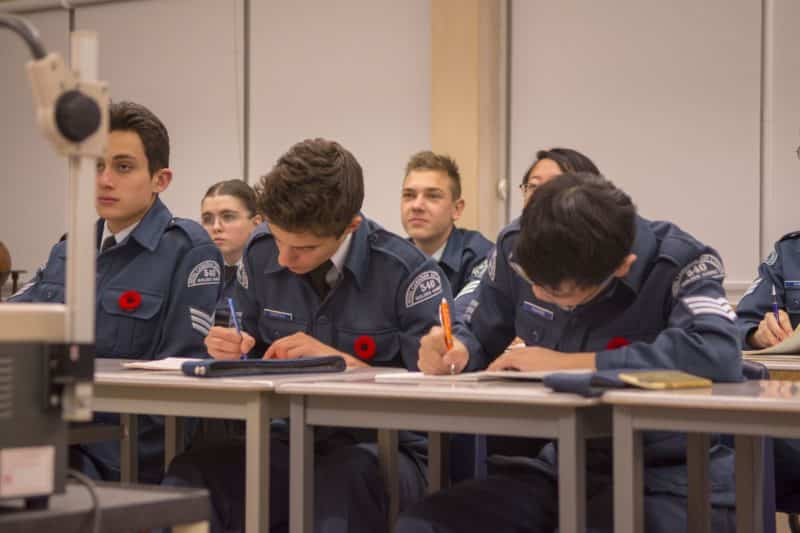
To Learn
Cadets learn about a wide range of topics relating to aviation, citizenship, instructional technique, principles of leadership, wilderness survival, and much more.
The training program is structured and caters towards the developments needs of youth as they progress in age, maturity, and responsibility.
Training extends to the summer months for those cadets selected to attend a summer training course at a Summer Training Centre. Summer courses range from 1-7 weeks and extend the training offered locally at our Squadron.
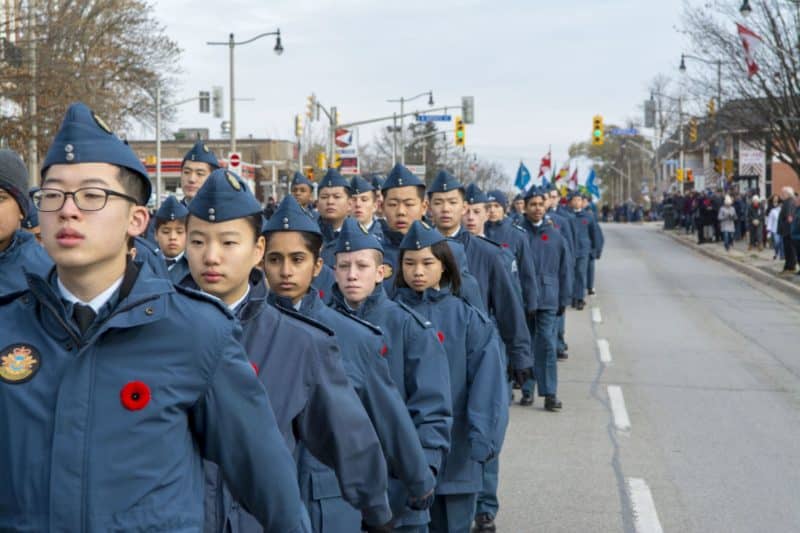
To Serve
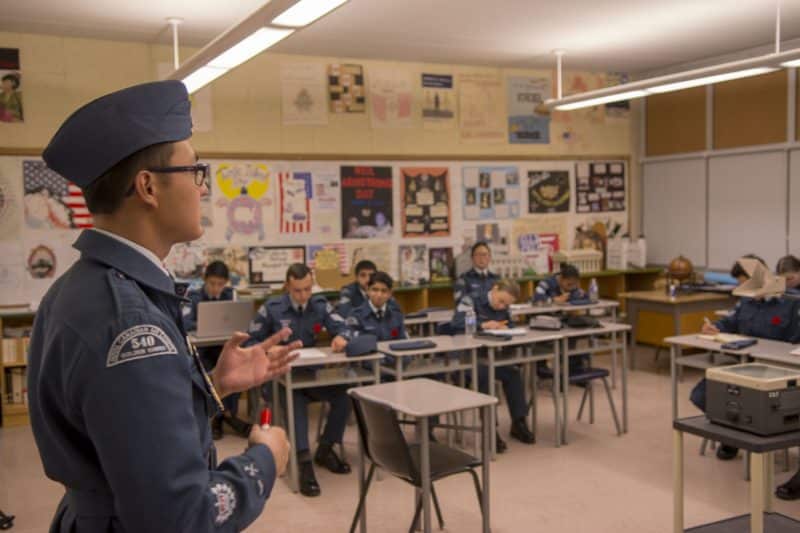
To Advance
Youth leading youth
As our Cadets advance through the program they are given increased opportunities to practice and develop leadership and instructional abilities.
By the time our Cadets reach their fifth year in our Squadron they are formally responsible for the development of their peers and subordinates, as well as planning and executing Squadron activities.
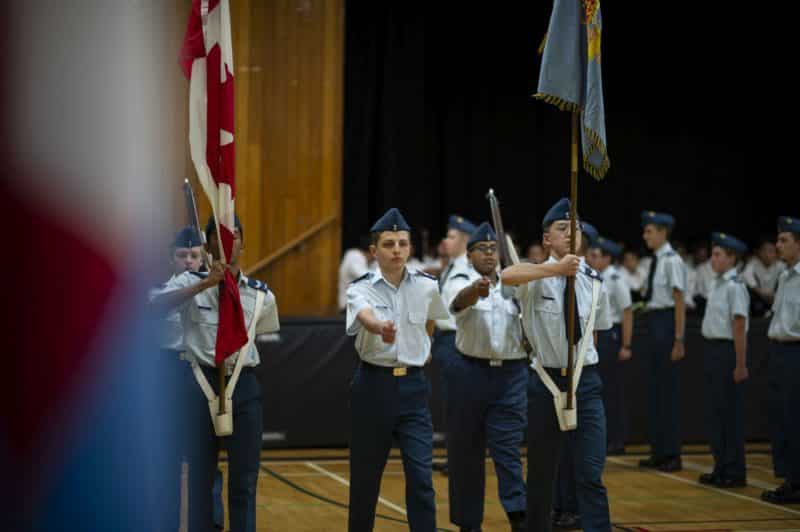
Training Program
Serving the youth and families of Oakville since 1951
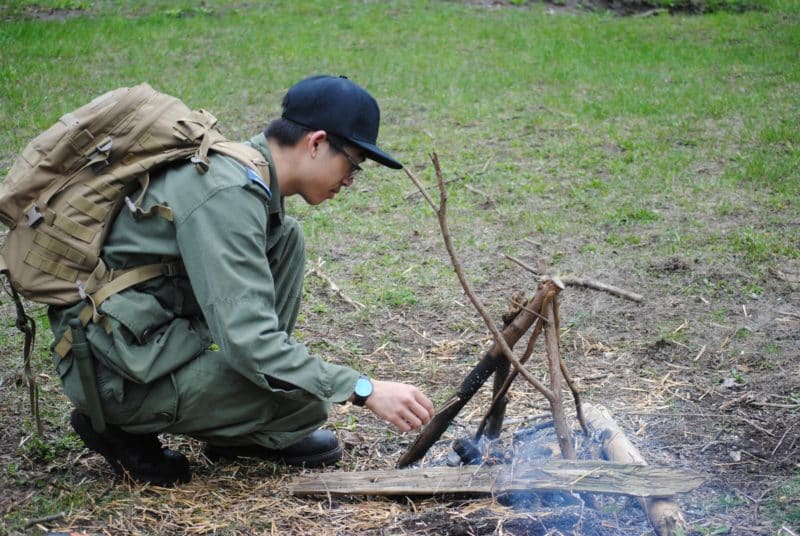
Field Training Exercises (FTXs)
Tents, military rations, and weather that will challenge you
Cadets spend these weekends learning outdoor survival topics such as shelter building, fire safety, survival psychology, and more.
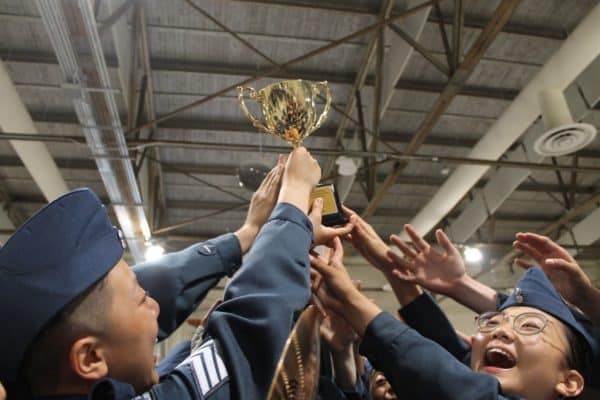
Extracurricular Teams
Hard work pays off
Many of our Cadets maintain a high level of activity and engagement with our Squadron by participating in extracurricular teams on evenings and weekends throughout the training year.
Our staff have observed that Cadets who participate on a team are more likely to have greater success with the Cadet Program overall due to building stronger relationships with peers, as well as increased opportunities to develop and practice leadership skills.
Our teams include: biathlon, effective speaking, marksmanship, military band, parliamentary debate, precision drill, rifle drill, and sports. Of special note is our military band, which has had the honour of being awarded Top Band in Ontario for 3 years in a row.
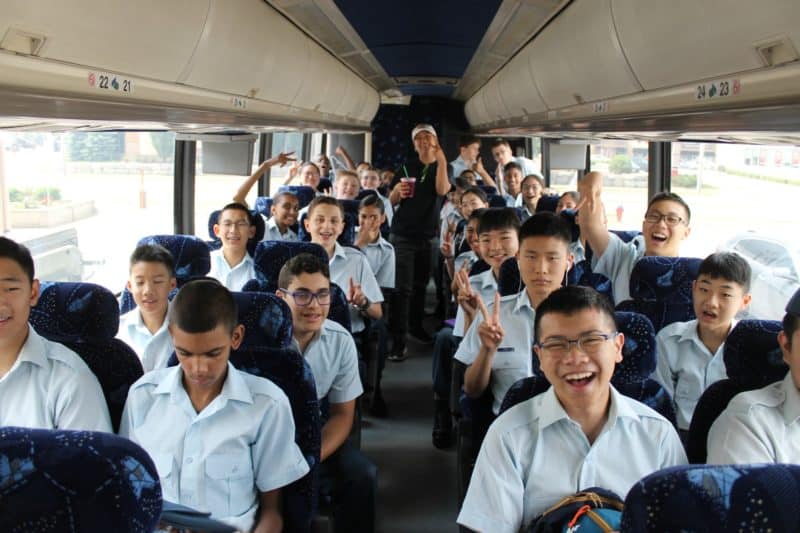
Summer Training
There’s a reason it’s not called summer “camp”
Summer Training provides Cadets with an opportunity to pick one (or more) specialized streams to supplement their regular training at 540 Sqn.
Streams include aviation, aerospace, wilderness survival, music training, drill and ceremonial, fitness and sports, and more. This is also when cadets can earn their Glider or Power Pilot’s license.
Courses run during July and August and range from 1 to 7 weeks long.
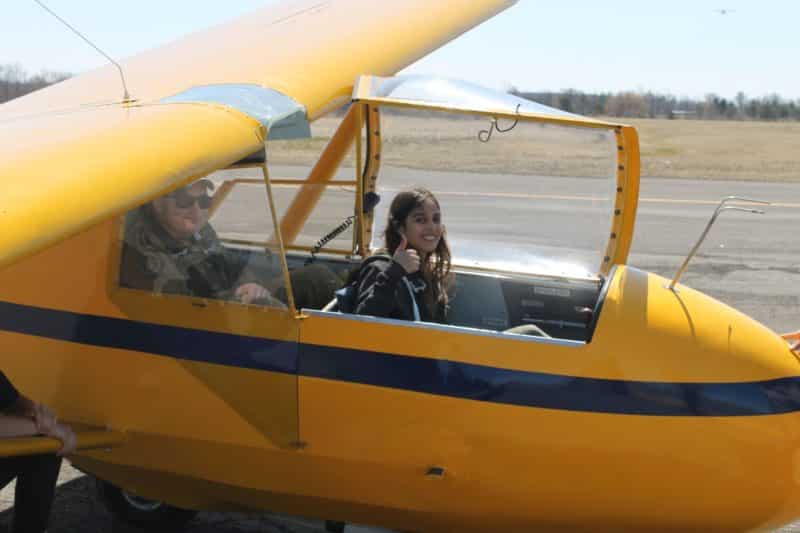
Glider Familiarization
The Air Cadet Gliding Program has been an essential component of the Royal Canadian Air Cadets since the beginning of the program.
Each fall and spring, our Cadets have the opportunity to experience the thrill of flight. These familiarization flights can be foundational to the development of each Air Cadet as they “slip the surly bonds of earth” for the first time. An experience that can never be forgotten.
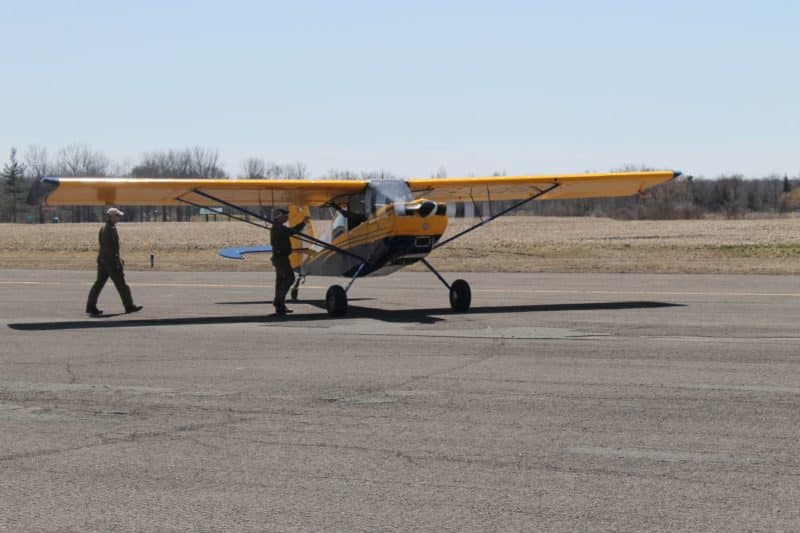
Pilot Training Course
Where Canada’s future airline pilots are made
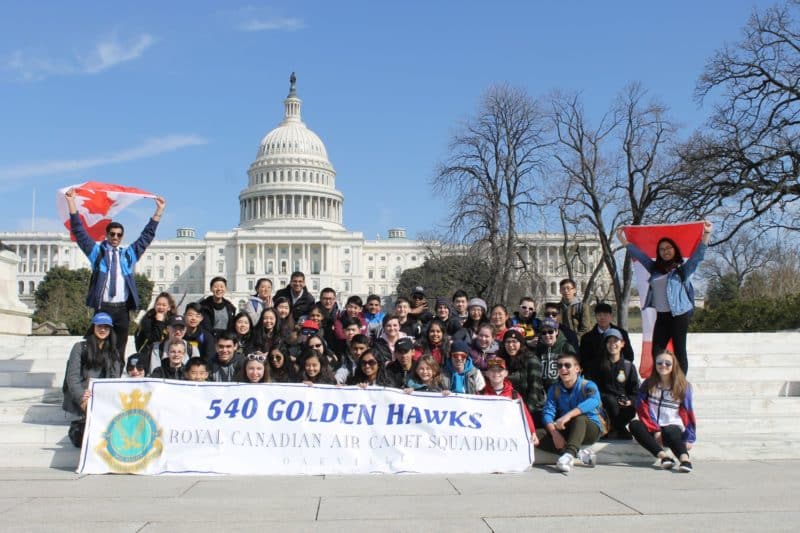
March Break Trips
Each year 50 Cadets are selected to attend the annual Squadron March Break trip. Selection is based on multiple criteria including: attendance, attitude, participation, and fundraising efforts.
Previous trips have included:
- Boston, MA
- Chicago, IL
- New York, NY
- Norfolk, VA
- Ottawa
- Quebec City
- Washington, DC
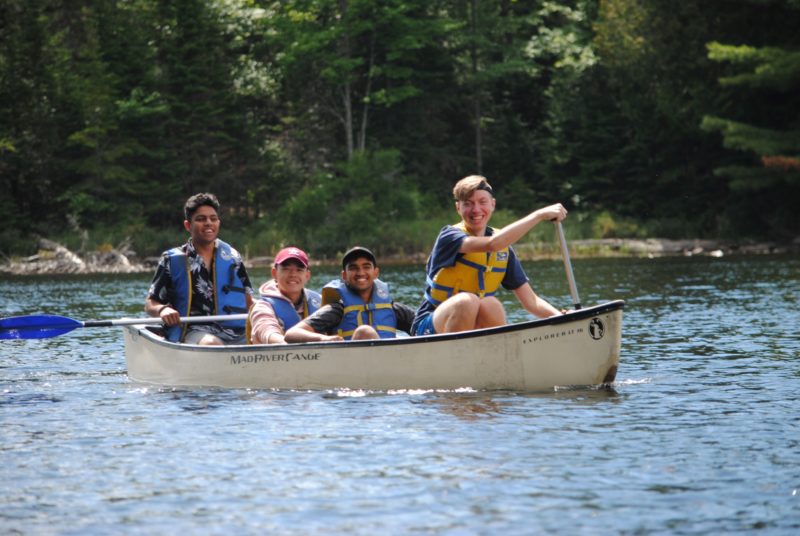
Algonquin Canoe Trip
At the end of August, a small group of cadets are chosen to go to Algonquin Park for a 5-6 day canoe trip. Completely detached from civilization and technology (no electricity or cell phone signal!), the cadets spend the week canoeing and portaging deep into the park and sleeping in camp sites along the edges of its lakes.
Cadets are chosen to attend based on their attendance, attitude, and participation throughout the training year, as well as the results of their written and practical canoe skills evaluation.
Cadets are provided all necessary canoe training; previous canoe experience is not a requirement to attend.
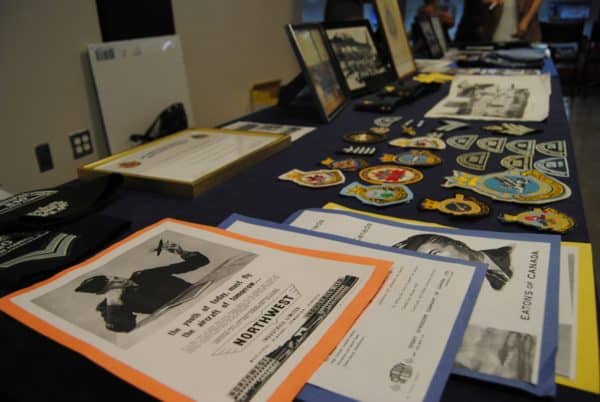
Duke of Edinburgh’s International Award
The Duke of Edinburgh’s International Award program is a non-competitive program that operates in more than 130 countries and territories. It is not part of the Cadet Program, but is offered by our Squadron Staff as an extra-curricular due to the ease in which Cadets can achieve much of the Award simply by participating in Squadron activities.
The Award was founded by His Royal Highness, Prince Philip to encourage personal development and community involvement for young people between the ages of 14 and 25 through four distinct areas:
- Community Service
- Skill Development
- Physical Fitness
- Adventurous Journey
Since its establishment in Canada in 1963, more than 500,000 young Canadians have taken the challenge to achieve Bronze, Silver, or Gold levels of the Award.
Cadets are entitled to wear the Duke of Edinburgh’s Award pin upon successful completion of each level, making it an easy and subtle way of stating a Cadet is above average.
